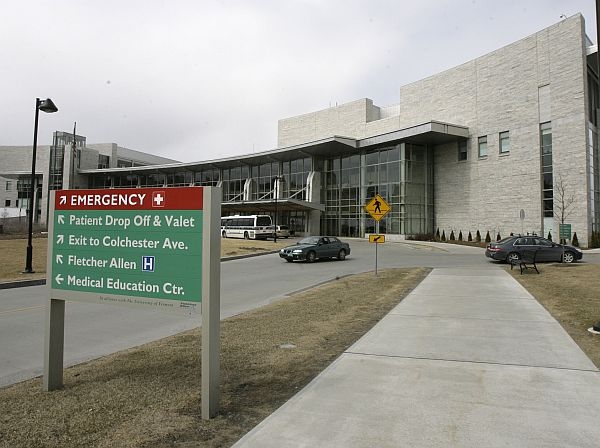 Fletcher Allen Health Care of Burlington and the Dartmouth-Hitchcock Medical Center of Lebanon, N.H., which have competed for decades to treat Vermont’s sickest patients, last week sought federal approval to jointly manage Medicare patients in Vermont.
Fletcher Allen Health Care of Burlington and the Dartmouth-Hitchcock Medical Center of Lebanon, N.H., which have competed for decades to treat Vermont’s sickest patients, last week sought federal approval to jointly manage Medicare patients in Vermont.
The cooperative effort would be called "OneCare Vermont" and would be led by Todd Moore, a Fletcher Allen vice president who also runs Vermont Managed Care; he will continue in that role. OneCare would be an accountable care organization (ACO), one of the keystones of President Obama’s federal reform effort.
The decision by the two academic medical centers to begin to join forces instead of competing is a decisive step forward for health care reform in Vermont, experts say, because it lays the groundwork for health care cost containment in an environment where quality is equally important.
Anya Rader Wallack, chair of the Green Mountain Care Board, welcomed the move. "OneCare and other developing provider organizations offer the potential to greatly improve how care is delivered and the degree to which the health care system is organizing to provide high value," she said.
"The systems themselves are not a panacea, but they offer a structure within which real, positive change could take place. Strong leadership and lots of hard work will be needed to fully realize the potential."
If the project is approved by the Centers for Medicare and Medicaid Services, the arm of the federal government that oversees the health care plans for the elderly and the poor, OneCare would begin to enroll the nearly 100,000 or so Medicare patients in the state on Jan. 1, 2013. OneCare would then begin to coordinate the care being delivered not only in the tertiary care centers in Burlington and Lebanon, but in community hospitals across the state and in doctors’ offices generally
According to Moore, all the hospitals in Vermont except Porter in Middlebury have agreed to participate in the program. And in his testimony before the Green Mountain Board last week, Porter CEO Jim Daily indicated that the only reason his institution can’t get ready to cope with OneCare on day one is that he needs to finish installing a complex new computer system before turning to a second big project.
In a joint interview Friday, Moore and Steve LeBlanc, an executive vice president at Dartmouth Hitchcock, laid out the rationale of the new program. It is not possible yet, they said, to lay out all the details of the program because CMS just received the application and the approval could require some changes in the approach.
The idea, however, is to begin to integrate the whole delivery system to the point that it is entirely rational, that there is no wasted or unnecessary care, that quality is assured, and, very importantly, that the annual increases in the cost of the entire system begin to drop toward a sustainable level.
At the first stage in the federal process, CMS will establish an inflation target for the system, and if the system does better than the target, the members of the system-the hospitals and the doctors-will be able to keep a portion of the savings. They call that Track One. There is some risk to providers, but only in that they could fail to gain anything because they didn’t exceed the target.
Moore and LeBlanc said that the critical point is what is called Track Two, in which providers have to take "downside risk." That is, if they fail to meet the target, they have to pay out a piece of the overage. In the Vermont case, the assumption is that OneCare would be on Track One for three years and would then move to Track Two, downside risk, for a second three-year stint.
The advantage of going to Track One first, Moore and LeBlanc said, is that providers in Vermont will be able to utilize any refunds they can garner to invest in the systems necessary to operate more efficiently.
That is where the rubber hits the road for real cost containment, according to health policy experts. As Fletcher Allen CEO John Brumsted told the GMC board last week, approval of the OneCare proposal would be the first step toward doctors taking ultimate responsibility for both the quality and expense of the whole system.
If CMS accepts the proposal, Brumsted said in an interview later, "participating providers will have the opportunity to learn how to deliver care in an environment where ultimately we will be taking financial risk." That is a critical step in achieving the full goals of health care reform, he said.